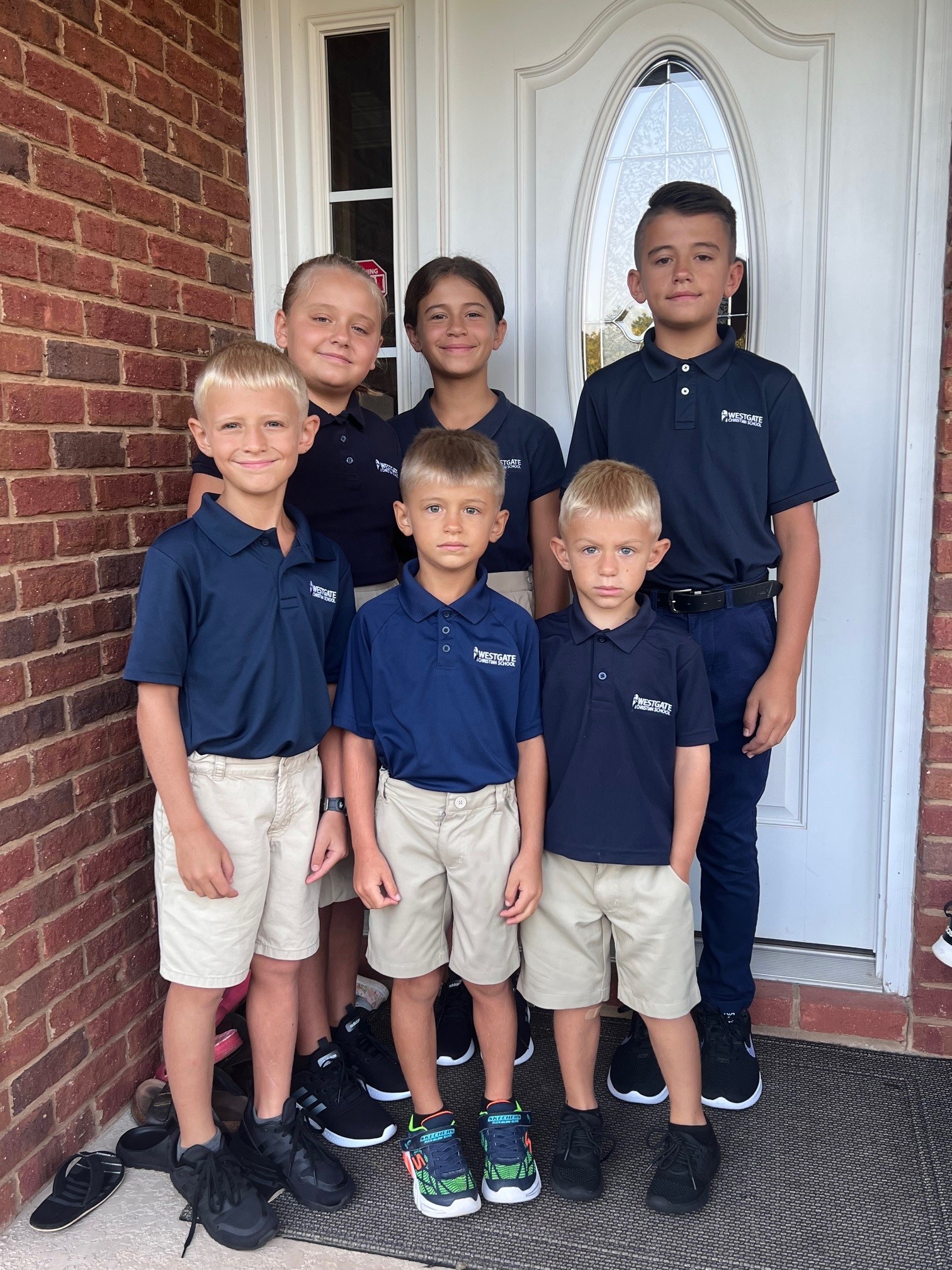
When Constantine and Aliona Shulikov left the former Soviet Union as children to escape religious persecution three decades ago, public education there was one-size-fits-all. Students attended assigned cookie-cutter government schools and took the same classes, with the same curriculum, with no room for individuality.
“Parents played no role and had no input in their children’s education,” Constantine said. “Alternatives such as private schools or homeschooling didn’t exist and wouldn’t even cross a parent’s mind.”
The freedom Constantine and his wife gained from becoming United States citizens made personalized education for their children even more precious.
Constantine, whose job involves designing and sometimes leading training programs for a large corporation, especially recognizes that no one way of learning works best for everyone.
After moving from Oregon to the South Carolina foothills to be close to family, they sought the best education for their five school-aged children. Private Christian schools, though attractive, were financially out of reach. So, for the older kids, they chose a charter school that specialized in environmental sustainability. The two youngest were homeschooled. Though not ideal, the arrangement worked.
They had heard of education choice scholarships in neighboring North Carolina. They wished South Carolina had something similar.
“We joked that maybe we should buy something right across the border so our kids could participate in the scholarship program,” Constantine said. Having access to such programs, he said, “was like a dream.”
Last year, their dream came true when the South Carolina General Assembly passed a new scholarship program. Under the Education Trust Fund Scholarship program, families who met income-based thresholds received $6,000 per student in an education savings account. After four of their five school-age children qualified for scholarships, the Shulikovs transferred them to Westgate Christian School. The school has an enrollment of 260 students ages 3 through 12th grade and is affiliated with Westgate Baptist Church, which drew its name from a nearby shopping mall built in the 1970s. Its smaller class sizes, faith-based instruction, and overall sense of community made it the perfect fit for all the kids, who range in age from 5 to 13 and whose diverse interests include books, sports, and art.
“They all love school and make friends very easily,” Constantine said. “It was a perfect fit”
The new school year got off to a great start. However, less than two months later, the South Carolina Supreme Court struck down the part of the program that allowed parents to spend their funds on private school tuition.
The ruling said the provision ran afoul of the state constitutional ban on public funds directly benefiting religious or private schools. Even though the funds allowed families to choose from a plethora of options that included public schools, the state’s high court called that argument “window dressing” and struck down the use of funds for private school tuition. Families are still allowed to use scholarships to pay for other state-approved uses in the program such as curriculum, tutoring and therapies.
Constantine still remembers the text from his wife the day the state Department of Education emailed that private school tuition payments would end immediately to comply with the Supreme Court ruling.
“It was a pretty big blow when we first heard the news,” said Constantine, who described the timing of the ruling as “jarring” and said his older kids expressed disappointment when he and his wife told them they might have to return to their former school.
Soon after the ruling, Constantine appeared along with other scholarship parents in videos produced by the Palmetto Promise Institute, a think tank that supports education choice. His public plea to save the program caught the attention of attorneys at the Institute for Justice, a national public interest law firm that supports education choice issues. He agreed to partner with the law firm as one of two plaintiffs in a lawsuit against the state.
The petition, which will be considered by a court that includes a replacement for the retiring anti-choice chief justice, asks the state high court to restore the program. It challenges the state ban and argues it violates the U.S. Constitution and U.S. Supreme Court. That includes the right to choose a private school.
“The state is penalizing parents who choose private schools for their children, a choice protected by the U.S. Constitution. The state cannot point to the South Carolina Constitution as justification for this discrimination, because the federal Constitution prohibits it,” IJ Senior Attorney Michael Bindas said.
Constantine, who is his household’s sole breadwinner, got a reprieve when wealthy donors contributed to a fund to cover scholarship families’ tuition costs temporarily. South Carolina lawmakers are already working on legislation that would rely on state lottery proceeds, which are not classified as public funds, to pay for the program.
Constantine, who said he has never sued anyone in his life, called it “an opportunity to stand up for my kids’ education.” He said IJ’s willingness to fight for the families, along with what’s going on in the legislature, gives him and his family hope.
“There’s some real emotion,” he said. “It was like a high and then a low, an unexpected blow. It was like getting the rug pulled right out from under you.”